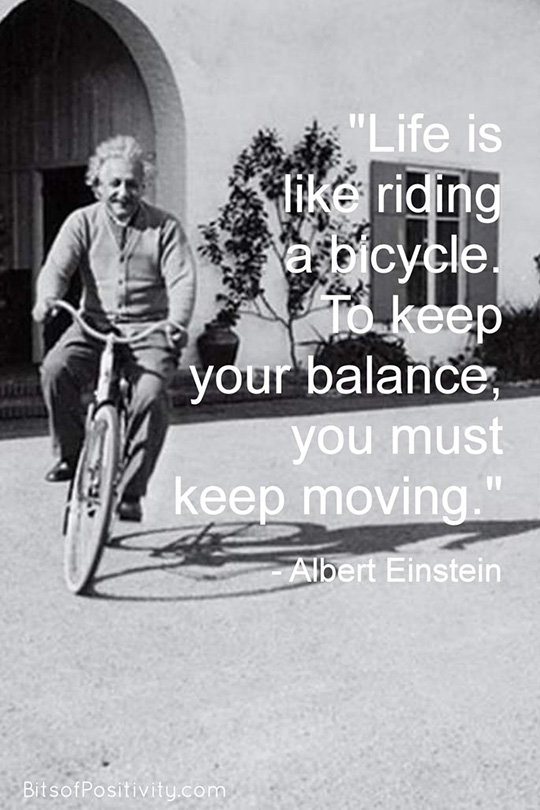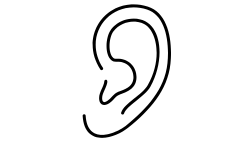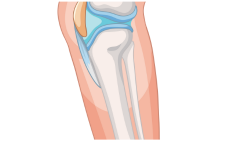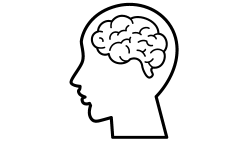Balance

How does my balance work?
To keep our body upright and balanced while we carry out tasks in our daily lives we need information from our eyes, ears, muscles, joints and skin.
All these systems need to be working together to achieve good balance.
Our brain will use this information to allow and make changes to our posture or movement to keep us from falling or losing our balance.
If these systems are not all working or we become more reliant on one system than the others, it can cause us to feel off-balance or dizzy. In some cases, we may experience nausea, difficulty concentrating or tiredness, as this is harder for our body to maintain.
This can improve by working and challenging your balance.
What is the balance system?

We use our Eyes to take in the environment around us and to see where we are in relation to other people or objects.

Our ears tell our brain where our head is and help us keep visual focus while we are moving. They also help control our position as we move or tell our brain how to react if we are caught off balance. This is done from information gathered from the vestibular system in the inner ear.

Our muscles, joints and skin have sensors that report any movement or shift in position back to the brain so we can keep upright and control our balance.

The brain helps co-ordinate the balance information and response.
Disclaimer
The information and videos are not a substitute for an assessment, diagnosis, or treatment for a medical condition and any exercises shown are not specific to your medical condition. Please remember if there is any doubt about your fitness for doing these exercises then discuss this with your GP or healthcare professional.
Helping to improve my balance
Doing exercises can help improve your balance. Why not try some of the basic balance exercises below and see if your balance improves. Start with exercise 1 and add in the other exercises as you are able. Try the exercises in sitting first and then move on to doing in standing:
- Move your head so you are looking from side to side. Repeat this 5 times. Now try looking up and down. If these movements give you a brief spinning sensation, please see our BPPV information.
- Now try reaching up to the ceiling or down to the floor and moving your head so your eyes can see where you are reaching. Repeat 5 times. Again, if you have a brief spinning sensation on doing these movements, see our BPPV information.
- Practise standing with your feet together, using support if needed. If you feel steady, try doing this while looking out a window, watching television or washing your hands.
- Go outside for a walk every day, if you can. Even if you start with 5 minutes and build up slowly until you can manage 30 minutes. Starting in a quiet area try, to look at the environment around you rather than focusing on your feet or a fixed point. It is important to be able to move our heads and look around as we move.
Any exercise should not increase your dizziness, pain or discomfort beyond a mild level. If symptoms persist for more than 20 to 30 minutes following an exercise, please stop the exercise.
Further Advice
After following the above advice and if your symptoms have not improved or these exercises are not suitable for you then we would advise you seek out formal assessment from a vestibular physiotherapist.
Regular exercise is beneficial. To stay healthy, the UK Chief Medical Officers’ Physical Activity Guidelines, on GOV.UK, state that adults should try to be active every day and aim to do at least 150 minutes of physical activity over a week, through a variety of activities. This can be broken up to 40 minutes of exercise 3 x weekly or 15 minutes 3 x daily. Start off low level and build up to avoid triggers. This can be any activity, walking, cycling, swimming, tai chi, yoga or gym. It is best to do what you enjoy as those healthy habits are easier to keep. When walking ensure you look around and take in the environment.
Your Feedback – comments, concerns and complaints
NHS Lanarkshire is committed to improving the service it provides to patients and their families. We therefore want to hear from you about your experience. If you would like to tell us about this please visit our feedback page.

